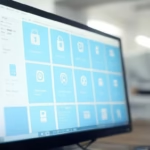The COVID-19 pandemic forces people to use digital technology to help with daily activities, such as studying, working to selling or doing business online. During this pandemic, inevitably people will have multiple accounts on digital platforms.
The more accounts, the more keywords you have to set up. Often internet users are tempted to use one password for various accounts so they don’t forget. How safe is such a practice?
Google Southeast Asia’s head of public relations, Ryan Rahardjo, considers such a method risky. As much as possible use passwords that are unique, or different for each account, and which are difficult to guess. Even if they are difficult to guess, they should be related to something that is easy for the user to remember. Passwords can also be a combination of letters and numbers to make them strong.
“A strong password will protect us,” said Ryan, as reported by Antara, Wednesday (27/10/2021).
If you’re still having trouble remembering passwords for multiple accounts, there’s now a password manager app. Apart from strong passwords, he also recommends that users protect Google accounts using security check tools. This tool will review the security that users have applied to their accounts.
Users can also take advantage of the two-factor authentication feature, an additional layer to secure accounts. When turning on this feature, the user will be asked to enter an additional code, such as a one-time password or OTP, which is sent by SMS or email, to log into the account.
Enabling security features is not enough to maintain account security on digital platforms, users are also expected to be careful about what they access. Google found a security risk among the labyrinth in the form of phishing emails to trick users into clicking on the given link.
Cybercriminals will disguise the email as if it came from an official company. Internet users are asked to be wary of incoming emails and not to click on links until they are absolutely certain that they are legitimate senders. Users should also be vigilant when asked for important information such as home addresses and bank accounts by strangers.








